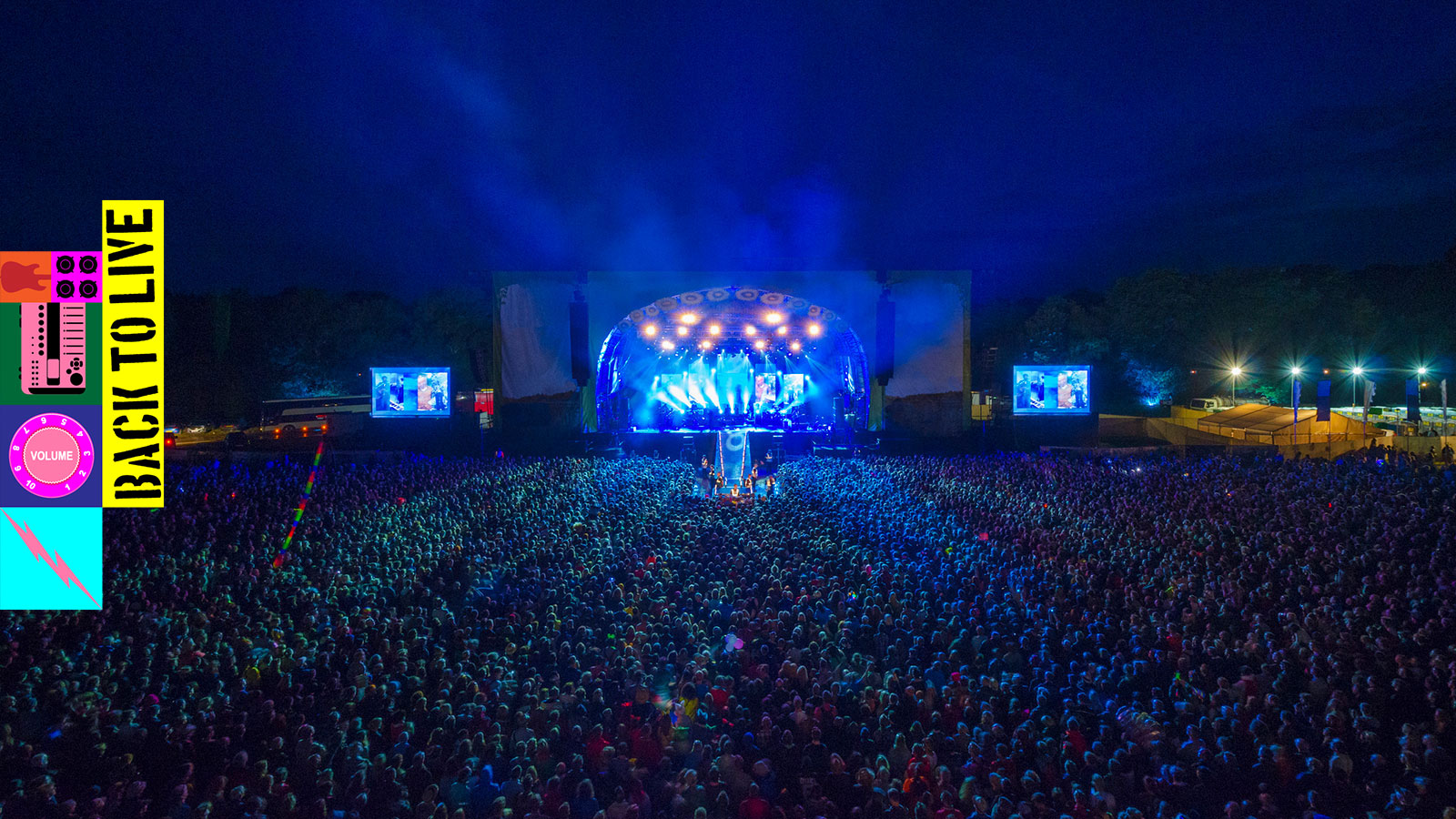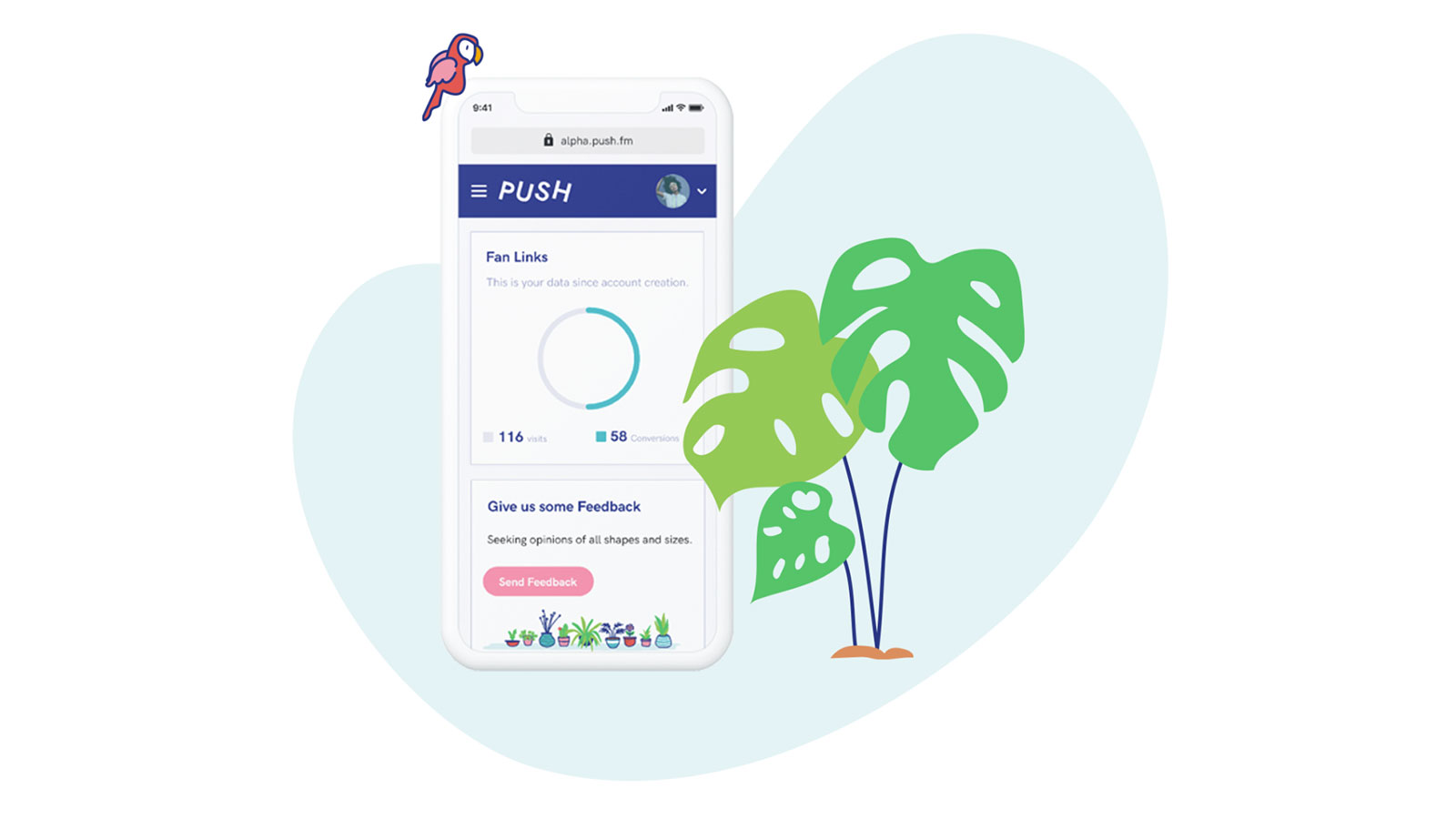Get bigger gigs with this essential guide to growing your audience
Back To Live: If audience management on top of everything else feels too much, we're here to help...

Want all the hottest music and gear news, reviews, deals, features and more, direct to your inbox? Sign up here.
You are now subscribed
Your newsletter sign-up was successful
BACK TO LIVE: You may be putting on some exhilarating live shows, but if you’re not effectively nurturing and analysing your new fans, you may as well stay in your studio.
As the live music industry prepares for - or at least we all sincerely hope - a period of rejuvenation, it’s important to remember that even despite the host of modern challenges new performers face in the wake of Covid, managing and developing your career as a gigging musician has always been a demanding prospect for those who’d rather remain in the comfort of their home studio. Right now, of course, the problems facing not just artists, but everyone involved in the industry, are immense.
The live music industry sustains tens of thousands of people around the world, from sound engineers, promoters, festival staff and more. With festivals losing over 90% of revenues in 2020 and grassroots music venues struggling to maintain their all-important weekly lifeblood after all shows and tours were cancelled, it’s going to be a tougher landscape than ever to navigate effectively, as venues and live artists get back on the horse.
But, conversely, with the restrictions soon to be lifted, the appetite for live music is going to be absolutely massive. Your lockdown tracks might just be the soundtrack to a new renaissance of live shows. So, let’s explore how you can make those freshly enthused gig-goers into dedicated fans.
Back to life
It’s an old story for many, spending endless months on the local live circuit, playing the same venues, to the same faces repeatedly, with a feeling of not really getting anywhere. To avoid finding yourself in this stagnant situation it’s important to not simply view your audience as a featureless mass of judgemental eyes. Each person at any of your shows is a potential new fan - and a future investor in your music.
Beatchain’s ‘Fan Map’ feature provides detailed geographical info on where the most fan activity is taking place
The most straightforward ways to cultivate that transformation during, or after, the gig is by keeping yourself personable and accessible to the people in attendance. It’s vital to be able to direct them to places where they can listen to more of your music, and follow you.
Of course, do direct them to streaming services where they can hear more of your tracks, but be sure to prioritise sending your prospective punters to places where they can actually buy your records. Services such as Bandcamp, CD Baby and Tunecore provide an easy mechanism to put your records for sale, and your bank account will, eventually, thank you.
Want all the hottest music and gear news, reviews, deals, features and more, direct to your inbox? Sign up here.
Though it’s essential to engage with your fans at the shows themselves, the most important work you can do to build your profile is behind the scenes. You may think over-exposure on social media can be construed as vain, but you need to view these platforms as a purely professional necessity. Places to interact with fans and let the world know about your upcoming performances

Web slinger
Making Facebook, Twitter and Instagram profiles that bolster the reach of your music - and make people aware of your future shows - isn’t just a case of uploading your tracks, a nice photoshoot and then just sitting back; it requires some active, daily, engagement.
Largely, you’ll need to understand the patterns in your most engaged fans - who are they? What else are they interested in? Where are the biggest clusters located? These are all critical questions that record labels and artist managers have been poring over for decades. In these increasingly DIY days, arming yourself with this knowledge could make-or-break a tour plan.
Platforms such as Beatchain, PUSH and old stalwart ReverbNation can assist you here, typically in exchange for a monthly subscription fee. All of which connect with your social channels to provide insight into the responses to your activities, fan demographics and suggestions for targeting new fans.
Though you can align these services to help your tracks get wider exposure, some of their in-built tools are a huge boon for gig coordination. Take Beatchain’s ‘Fan Map’ feature, which provides detailed geographical info on where the most fan activity is taking place.
Once you have the fans, it’s important to keep them engaged until the next show comes around
If you’re savvy, that’s where you’ll book your shows (budget permitting, of course). Gigwell provides a similar service, via its massive Tour IQ database, which intelligently peruses your tour itinerary, and suggests other potential venues on your route, from arenas to coffee shops.
Other tools, such as Gigplanner can be a major help for logistical headaches, particularly when travelling long-distance for shows, playing in several different musical outfits or dealing with a growing roster of promoters. It provides one central calendar and contact management hub, easily shareable and distinct from your own personal life.
Not just for Christmas
Targeting those fans most likely to attend your shows is an essential step in the process. But, once you have the fans, it’s important to keep them engaged until the next show comes around. Incentives, such as giving your followers/subscribers early-access to new music, new videos or even special fan-only livestreams can really solidify that fandom, and gifting free VIP tickets via self-ran competitions also builds the connectivity.
Don’t over-complicate your ticket-purchasing page: make it as easy as possible for prospective attendees
The old adage ‘a dog is for life, not just for Christmas…’ applies quite well when thinking about your fans. If you don’t nurture that enthusiasm, they’ll soon lose interest. Whether you’re a large or small-scale artist, having an ongoing plan of audience-retaining activity can mean that all that hard work planning and performing is building something, and that your audience will never forget you.

Roll up
Time was, shady promoters would sell you a wad of tickets to your own shows, motivating you to tout them yourself and keep any profit. Not only was this process humiliating, forcing you to bombard friends with invitations, but more often than not meant that at best you’d break even financially.
Thankfully, things have changed, with platforms like Eventbrite, EventGenius or even Facebook Events enabling you to sell your e-tickets directly online.
Often the very best way to build some attention is to show it to others
It’s a dead cert that you’ll want attendees to be able to gain access with their mobile, over physical tickets. Also, don’t over-complicate your ticket-purchasing page: keep things simple, punchy and make it as easy as possible for prospective attendees to complete their purchasing journey.
Be sure to ask your friends, or other industry/local scene influencers, to share your ticket-buying link, and don’t forget to promote with pictures of your last gig, and to share shots of the gig in question once it’s done (you might need to ask a friend to take some, or, if you’ve got the cash, get a professional snapper down there!)
Hey scenesters
While it can be easy to get wrapped up in your own complicated world of fan management, tour-planning and rehearsing, often the very best way to build some attention is to show it to others; get yourself down to your local venues, support new artists, talk to them after gigs and buy their music.
You’ll be surprised by how many other musicians will feel the reciprocal compulsion to attend your shows too. Build these inter-band/artist relationships, and you may be able to set up joint strategies to help the both of you.
There’s a careful balance here, you don’t want to appear too keen to milk the benefits of others - particularly if they have mouth-wateringly high social numbers - but if you can genuinely build up a good reputation, you might naturally see your audience quadruple. Remember, this isn’t a competition, and you’ll go further working together than going your own way.


Computer Music magazine is the world’s best selling publication dedicated solely to making great music with your Mac or PC computer. Each issue it brings its lucky readers the best in cutting-edge tutorials, need-to-know, expert software reviews and even all the tools you actually need to make great music today, courtesy of our legendary CM Plugin Suite.
